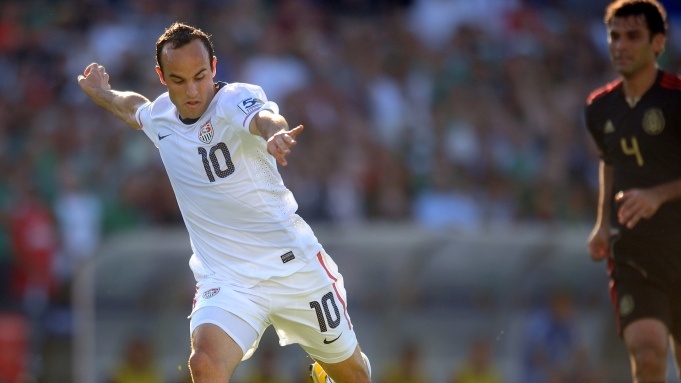
You have reached the right place to learn more about the legend of Brazilian football, Pele. This article will give you information about the life and career of this legendary football player. Born in 1940, he was the first to score 1000 goals and win three World Cups. Discover his remarkable achievements and why he is considered a Brazilian legend. Here are some fun facts about Pele. Enjoy! Do not forget to share the Pele history of your loved ones!
Pele was born on April 20, 1940
As a young boy in Bauru, Brazil, Pele played for the local youth soccer club. He started to be known simply as "Pele" at the age of 15. He joined Santos Futebol Clube in his twenties and quickly became the top scorer of the club's history. Pele was invited by Santos to play for the Brazilian team, and was named the player of that year.

He was the 1st player to surpass 1000 goals
Pele, then 29, was traveling to Rio de Janeiro as part of his Santos group in 1967. The two teams met in the legendary Maracana stadium, which seats 125,000. Pele had tried to score several times, but the game ended goalless. Pele hit the woodwork and then an opponent's defender turned in an own goal.
He has won three World Cups
Pele, Brazil’s greatest player, won three World Cups in his time with the team. He was only a teenager when he lifted the 1958 World Cup trophy. He was later injured, but he won the tournament again. His best moment was in 1970 when he led Brazil towards a third World Cup win. He is the only person to have won three World Cups. These are five facts you might not know about Pele.
He is a Brazilian football legend
Pele is one of the most important players of all time. In 1999, he was named the World Player of the Century by the International Federation of Football History Societies (IFFHS). Although he retired in 1977, Pele has remained an important ambassador for the game. He was awarded for his exceptional talent and humanitarian contributions. Born in a small village near Fluminense, the Brazilian football legend was born October 25, 1940. Dondinho, a semi-professional soccer player, and Maria Celeste Arantes, a teacher at school were his parents.
He was an actor.
In addition to his football career, Pele also appeared in films. He was Michael Caine's coach in the blockbuster "Escape to Victory" (1981). He helps a group of orphans in "A Minor Miracle." In 2004 he was featured in a biopic called Pele Forever, which features his atmospheric drum music. Pele, a former football player turned actor and well-known impersonator.

He was a great ambassador for good causes
Despite being a soccer superstar, Pele has always shown an interest in humanitarian causes and was a strong advocate of children's rights. Pele also joined UNICEF, a charity dedicated to children's rights, and launched The Pele Foundation in order to empower poor children around the world. Pele, who was born in poverty, has a natural affinity towards humanitarian causes and plans to expand his foundation’s goodwill programs to address gender inequality.
FAQ
What happens after a goal in soccer has been scored?
Once a goal has been scored, the opposing side gets a chance to kick a free ball. The defending team may be allowed to take a free kick if they commit fouls during play. A free kick can be taken after the goal is scored.
Where can I buy cheap soccer equipment?
Sports goods shops can often sell inexpensive soccer gear. There are usually soccer balls, shin protectors, jerseys, as well other items, at discount department shops. You can also check out online retailers like Amazon.com.
What is a soccer defender?
Defenders usually defend against attackers trying to score goals. Defenders defend against attackers trying to score goals by blocking shots and tackling them.
What does a soccer goalie do?
Goalies are responsible for keeping the ball away from the opposing team's net. Goalies use their hands, feet, and head to stop the ball from entering the net.
Statistics
- From the 1850s onward, industrial workers were increasingly likely to have Saturday afternoons off work, and so many turned to the new game of football to watch or to play. (britannica.com)
- Even with the new issuance, control of the club will be retained by the Glazer family as they will retain 67% of B shares which have voting power, so little will likely change in the general approach taken to the finances of the club. (sites.duke.edu)
- After hosting an entertaining World Cup finals in 1994, the United States possessed some 16 million football players nationwide, up to 40 percent of whom were female. (britannica.com)
- The word "soccer" is a British invention that British people stopped using only about 30 years ago, according to a new paper by University of Michigan professor Stefan Szymanski. (businessinsider.com)
- the estimated cumulative television audience for the 2006 World Cup in Germany was 26.2 billion, an average of 409 million viewers per match." (en.wikipedia.org)
External Links
How To
How to dribble soccer ball
Dribbling is a key skill in soccer, a sport played around the world. Dribbling involves the ability to pass the ball quickly, accurately, and with your head elevated. You need to have good technique when passing the ball around to teammates. To control the ball, the best players use both their feet and their heads.
You should practice dribbling every day to improve your skills. Put pressure on yourself to improve your ability to dribble under pressure. You might also find it helpful to practice dribbling against an object to determine if you are able to maintain your balance.
There are many different ways that you can dribble your ball. Some players like to move with the ball and others prefer to start from behind, then move forward. A few players even try to spin the ball while dribbling.
Watch professional soccer games on TV to help you learn how to dribble. Take a close look at the action to see the techniques used by the top players. Practice the moves displayed on the screen. Once you feel ready, play a game with your friends. Let them play the role of stopping you.